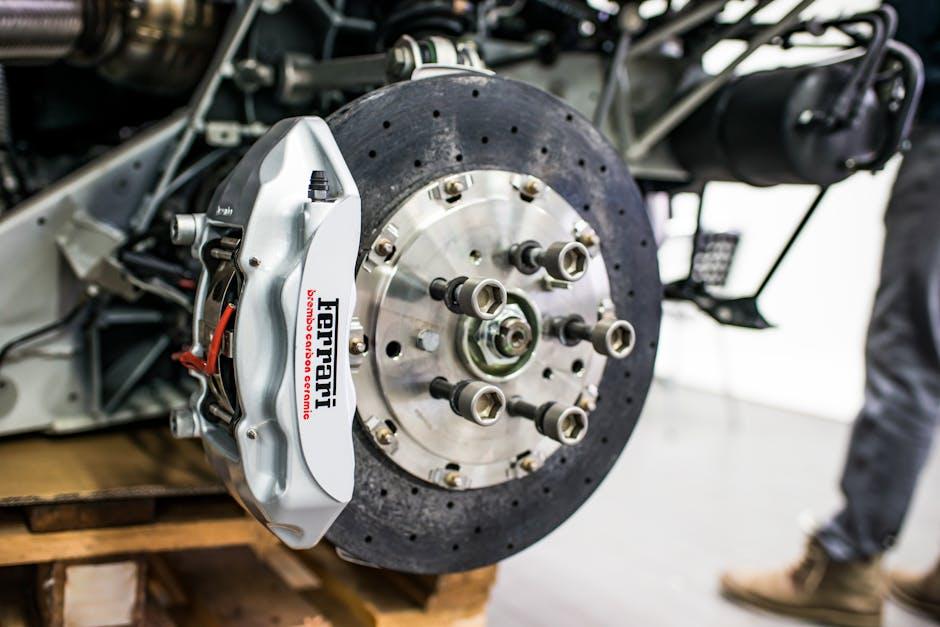There’s a sound no driver wants to hear—a sharp, high-pitched squeal that pierces the quiet of the road. Squeaky brakes can be more than just an irritating noise; they often signal underlying issues that, if ignored, might compromise your safety. Whether it’s a mild chirp or a persistent screech, understanding the causes behind this common complaint and knowing how to fix it can keep your vehicle running smoothly and silently. In this article, we’ll explore the typical reasons brakes squeak and offer practical solutions to get you back on the road with confidence and peace of mind.
Table of Contents
- Understanding the Common Causes Behind Squeaky Brakes
- The Role of Brake Pads and Rotors in Brake Noise
- How Moisture and Environmental Factors Affect Brake Sound
- Step-by-Step Guide to Diagnosing Brake Squeaks at Home
- Effective Solutions and Maintenance Tips to Silence Your Brakes
- When to Seek Professional Help for Persistent Brake Noise
- Q&A
- In Summary

Understanding the Common Causes Behind Squeaky Brakes
Squeaky brakes often serve as an audible warning that something is amiss in your vehicle’s braking system. One of the most frequent culprits is accumulated dust and debris on the brake pads. As the brake pads press against the rotors, this layer of grime can cause a high-pitched squeal. Another common cause is worn brake pads. When the friction material wears down to a certain threshold, a built-in metal indicator makes contact with the rotor, producing the characteristic squeaking noise to alert drivers it’s time for replacement. Additionally, moisture from rain or humidity can temporarily react with the metal parts, resulting in squeaks that typically disappear after a short drive.
Other less obvious reasons include improper installation or lack of lubrication on contact points where brake components meet. Sometimes, the type of brake pad material itself can influence noise — for instance, metallic pads tend to be noisier than organic or ceramic variants. Below is a quick reference to typical causes and their relationship with squeaking intensity:
| Cause | Noise Level | Common During |
|---|---|---|
| Dust & Debris Build-up | Medium | After Rain or Driving on Dirt Roads |
| Worn Brake Pads | High | Constant, Especially When Braking |
| Lack of Lubrication | Low to Medium | Intermittent, Usually When Cold |
| Moisture Build-up | Low | Early Morning or After Rain |
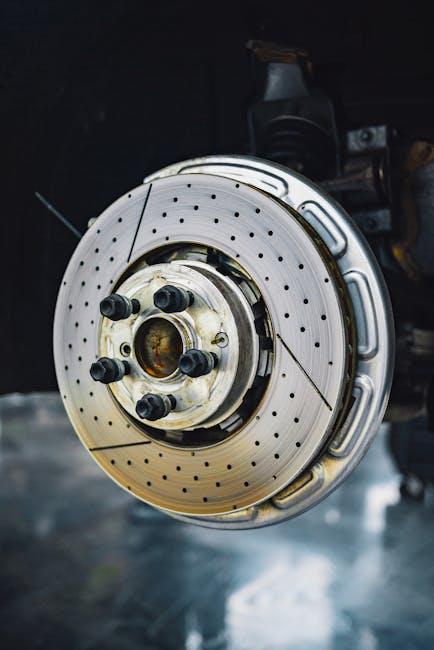
The Role of Brake Pads and Rotors in Brake Noise
One of the primary contributors to brake noise lies within the delicate interaction between brake pads and rotors. When these components aren’t in sync, subtle vibrations can occur, producing that dreaded squeal. Brake pads are designed with specific materials, such as organic, semi-metallic, or ceramic, each influencing the sound frequency generated when pressed against the rotor. Over time, wear, glazing, or contamination from dirt and moisture can alter these materials’ effectiveness, leading to increased friction and unwanted noise. Additionally, improperly installed or low-quality pads can exacerbate squeaking, signaling a need for immediate inspection or replacement.
The rotors, meanwhile, serve as the contact surface for the pads, and their condition is crucial for smooth braking performance. Warped, cracked, or unevenly worn rotors cause inconsistent pad contact, resulting in vibrational noise and pulsation during braking. Regular maintenance often involves resurfacing or replacing rotors to ensure a flat, clean surface. Below is a quick reference table outlining common rotor issues and their noise implications:
| Rotor Issue | Noise Characteristic | Recommended Fix |
|---|---|---|
| Warped Surface | Pulsating squeal during braking | Resurface or replace rotor |
| Surface Rust | Intermittent squeaking after rain | Clean or replace rotor |
| Deep Grooves | Continuous harsh squeal | Replace rotor |
- Tip: Regularly checking both pads and rotors can prevent squeaky brakes from becoming a safety hazard.
- Using anti-squeal lubricant on the pad backs helps reduce vibrations and extend component life.
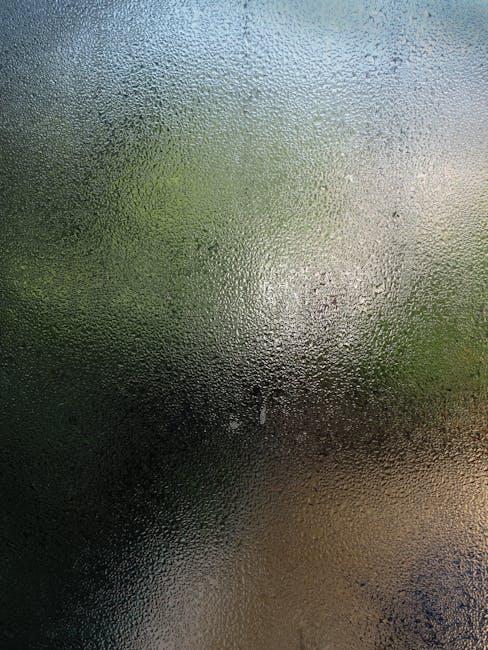
How Moisture and Environmental Factors Affect Brake Sound
When moisture settles on your brake system, it can create a thin layer of rust or corrosion on the rotors and pads, causing that infamous squeaking noise. This is especially common during early mornings or after rain. Environmental factors such as humidity, temperature changes, and road salt can intensify these effects, making the sound more frequent or persistent. Even dust, dirt, and debris stirred up from the environment can contribute to brake squeal by embedding themselves between the pad and rotor surfaces.
Key environmental triggers include:
- Cold, wet weather encouraging rust buildup overnight
- High humidity causing persistent moisture accumulation
- Salt or sand from winter roads increasing abrasion
- Dust and dirt from off-road or construction areas contaminating brake components
| Environmental Factor | Effect on Brakes |
|---|---|
| Moisture | Surface rust forms; initial squeak after inactivity |
| Humidity | Continuous dampness worsens pad-rotor interaction |
| Road Salt | Accelerates corrosion, increases abrasive particles |
| Dust/Debris | Interferes with smooth pad engagement, causes squeal |
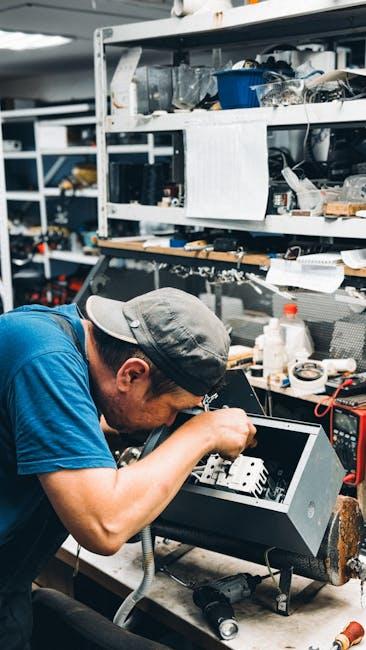
Step-by-Step Guide to Diagnosing Brake Squeaks at Home
Begin by safely parking your vehicle on a flat surface and engaging the parking brake. Remove the wheels to access the brake components easily—this step is crucial for a thorough inspection. While wearing gloves, check the brake pads for uneven wear or thinning; pads less than 3mm thick often cause unwanted noise and require replacement. Next, glide your fingers over the rotors—they should be smooth without deep grooves or rust patches. Don’t forget to peek at the calipers for proper alignment and signs of sticking, which can exacerbate squeaking. Tip: Using a flashlight enhances visibility of hard-to-see areas.
Once the physical examination is complete, perform a quick functional test. Press the brake pedal multiple times to detect any inconsistent resistance or lingering sounds. If squeaks persist, consider these common culprits when diagnosing:
- Dust and dirt buildup creating friction between parts
- Worn brake hardware such as shims or clips
- Moisture causing temporary noises after rain or washing
- Glazed pads from overheating during heavy braking
For clearer understanding, refer to the table below summarizing typical symptoms and quick fixes:
| Symptom | Likely Cause | Quick Fix |
|---|---|---|
| Squeak only when braking lightly | Dust or debris on pads | Clean pads with brake cleaner |
| Persistent squeal under all braking | Worn/shim missing | Replace pads and hardware |
| Squeaks only after rain | Moisture on rotors | Drive slowly to dry off |
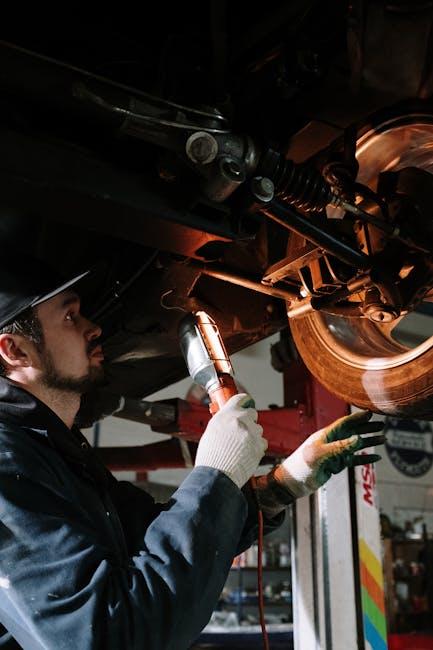
Effective Solutions and Maintenance Tips to Silence Your Brakes
To effectively silence your brakes, start by inspecting the brake components for contamination such as dirt, oil, or rust. A thorough cleaning with brake cleaner can often resolve the noise without the need for replacement. Applying a high-quality brake lubricant on the back of brake pads helps reduce unwanted vibrations that cause squeaking. Additionally, replacing worn-out pads with ceramic or semi-metallic options enhances durability and noise resistance, providing a quieter driving experience.
Regular maintenance is key to keeping brake noise at bay. Follow these simple but essential tips:
- Inspect brake pads and rotors every 6,000 miles or sooner if noise develops.
- Keep components clean—remove debris and buildup using appropriate cleaners.
- Apply brake grease specifically designed for pads, caliper slides, and hardware.
- Replace worn parts promptly to prevent uneven wear and damage.
| Maintenance Task | Recommended Frequency | Benefit |
|---|---|---|
| Brake Pad Inspection | Every 6,000 miles | Prevents excessive wear |
| Caliper Lubrication | With every pad change | Reduces squeaking and sticking |
| Rotor Cleaning | Biannually | Eliminates rust and debris |

When to Seek Professional Help for Persistent Brake Noise
Persistent brake noise can be more than just an annoyance; it might signal underlying issues that require expert diagnosis and repair. If you notice that the squeaking persists even after simple cleaning or applying lubricant, it’s time to consider professional inspection. Additionally, any accompanying symptoms such as reduced braking efficiency, vibrations, or grinding sounds should raise immediate concern. Ignoring these signs can compromise your safety and lead to more expensive repairs down the road.
Consider visiting a brake specialist if you experience any of the following:
- Noise that worsens over time despite routine maintenance.
- Brake pedal feels soft or spongy during application.
- Unusual vibrations or pulling to one side while braking.
- Visible wear or damage to brake pads, rotors, or calipers.
| When to Seek Help | Potential Cause |
|---|---|
| Ongoing squeaking after lubrication | Worn brake pads |
| Grinding noise during braking | Damaged rotors |
| Soft brake pedal feel | Brake fluid issues or air in lines |
| Vibrations when stopping | Warped rotors |
Q&A
Q&A: Squeaky Brakes – Causes and Fixes
Q1: Why do my brakes squeak every time I press the pedal?
A1: Squeaky brakes often signal that your brake pads and rotors are encountering friction in a way that creates noise. Common causes include worn brake pads, glazed rotors, or the presence of dust and debris caught between the components. Even moisture or sudden temperature changes can provoke that high-pitched squeal.
Q2: Is a squeaky brake sound something to worry about immediately?
A2: While a squeak doesn’t always mean your brakes are failing, it’s a warning sign you shouldn’t ignore. Continuous noise could indicate worn brake pads that need replacing or rotors that require resurfacing. Leaving it unchecked may compromise braking performance and safety.
Q3: Can I fix squeaky brakes myself, or do I need a mechanic?
A3: If you’re comfortable with basic car maintenance, you might tackle minor fixes such as cleaning the brake components with brake cleaner or applying anti-squeal lubricant to the pad backing. However, for worn pads, warped rotors, or persistent noise, seeking a professional’s help ensures the job’s done right.
Q4: What are the most effective ways to stop brake squeak?
A4: Addressing squeaky brakes usually involves:
- Replacing worn brake pads with quality, noise-reducing versions
- Resurfacing or replacing rusted or glazed rotors
- Thoroughly cleaning dust and debris from braking components
- Applying brake lubricant to the pads’ back or caliper slides
- Checking for hardware issues, like loose clips or worn shims
Q5: Can using a different type of brake pad prevent squeaks?
A5: Yes! Some brake pads are engineered to reduce noise—ceramic pads, for instance, tend to produce less squealing compared to traditional semi-metallic pads. Choosing the right pad that matches your driving habits and vehicle type can minimize squeaks and extend brake life.
Q6: Why does moisture cause brake noise after rain or washing my car?
A6: Moisture can form a thin layer of rust or cause the brake pads to momentarily stick to the rotors, both of which create squeaks during initial stopping. Usually, this noise fades after a few brake applications once surfaces dry or wear off the rust layer.
Q7: How can I tell if noisy brakes signal a serious issue?
A7: If the squeaking is accompanied by grinding, reduced braking responsiveness, vibration, or a warning light on your dashboard, it’s time to get your brakes inspected immediately. These symptoms could mean severely worn pads or damaged rotors that compromise safety.
This Q&A captures the essence of why brakes squeak and how to resolve the issue, making the topic approachable for any driver concerned about those annoying squeals.
In Summary
In the symphony of your daily drive, squeaky brakes can become an unexpected and unwelcome note. Understanding the causes behind that annoying sound—from worn pads to dust buildup—empowers you to take the right steps toward a smoother, quieter ride. Whether you’re a hands-on fixer or prefer the expertise of a professional, addressing brake squeaks promptly ensures safety doesn’t take a backseat. So next time your brakes sing their high-pitched tune, remember: with the right knowledge and care, harmony on the road is never far away.

